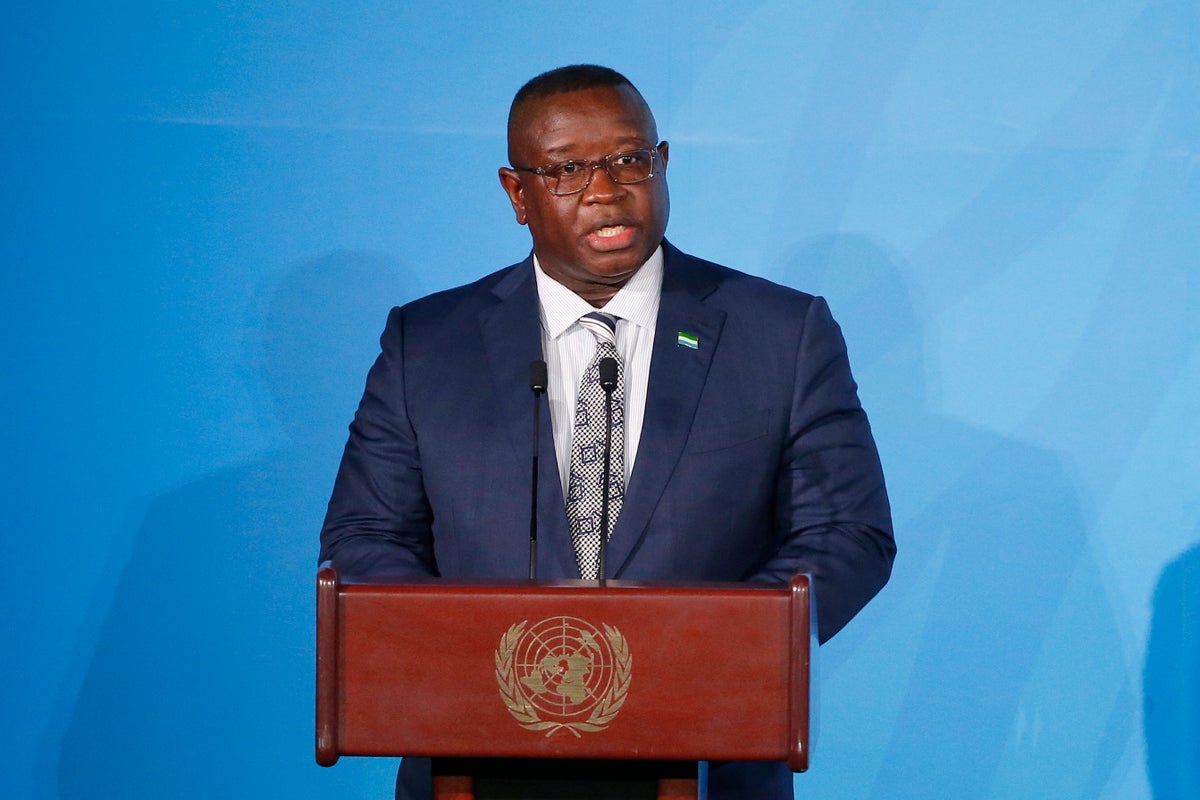Sierra Leone’s main opposition calls for presidential election re-run after incumbent named winner


Sierra Leone’s main opposition party on Saturday demanded a re-run of last weekend’s presidential election after incumbent President Julius Maada Bio was declared the winner and swiftly sworn in for a second term in the West African nation.
The opposition All People’s Congress party, or APC, accused Sierra Leone’s electoral commission of conspiring with Bio’s party to rig the results. In a statement, the party also called for the resignation of electoral commission chairman Mohamed Konneh and his entire team among others.
“What culminated in the rogue announcement of fraudulent election results on June 25 was not just a naked theft of the votes of the suffering masses who needed change, it represents the biggest threat to our democracy, unity and survival as a nation,” it said.
According to official results, Bio received 56.17% of the vote, enough to beat his man challenger Kamara while avoiding run-off. Electoral officials said Kamara had received 41.16% of ballots cast.
Bio, who already was sworn into his second term several days after the vote, tweeted for “all Sierra Leoneans to be peaceful and law-abiding.”
“This is a collective victory for every citizen and we must come together now that elections are over for the pursuit of a common goal, which is the development of our dear country,” Bio tweeted.
There have been concerns that Sierra Leoneans who dispute the election’s outcome could take to the streets. Already the West African nation has seen demonstrators protest the state of the economy in recent months. Nearly 60% of Sierra Leone’s population of more than 7 million are facing poverty, with youth unemployment being one of the highest in West Africa.
The APC’s statement comes as pressure mounts on the electoral commission to open up its conduct of the tabulation process of the elections results.
While regional observers like the African Union and ECOWAS declared the elections free and fair, other Western observers have stressed that the counting and tabulation process lacked transparency. The European Union, the UK, U.S. and France in particular have pressured the electoral commission to display results from each polling station.
xnxx,
xvideos,
porn,
porn,
xnxx,
Phim sex,
mp3 download,
sex 4K,
Straka Pga,
gay teen porn,
Hentai haven,
free Hentai,
xnxx,
xvideos,
porn,
porn,
xnxx,
Phim sex,
mp3 download,
sex 4K,
Straka Pga,
gay teen porn,
Hentai haven,
free Hentai,




